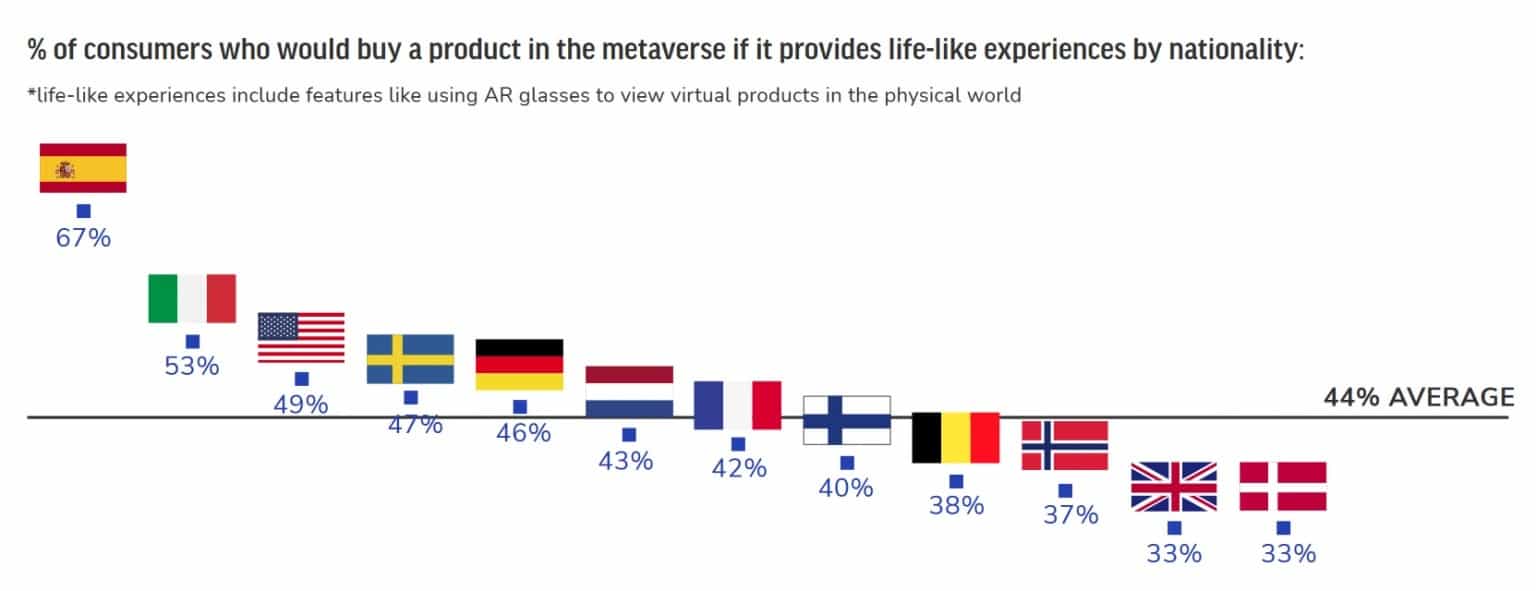Metaverse: it’s the buzzword of the moment, being thrown around by opportunistic companies and hardened crypto-fans. But are consumers really interested? Not so much, according to a recent study, which shows that their expectations are out of sync with reality
Consumers don’t really care about the metaverse
Is the metaverse the announced revolution, or a marketing stunt that will fade away? It’s hard to predict yet, but what is certain is that it’s a catch-all term where many concepts are mixed together. Perhaps this is why consumers are showing a certain lack of interest in it. At least that is what a recent study by Censuswide concluded.
As the study points out, the growth potential of the meta-verse is substantial: the potential turnover is estimated at 800 billion dollars by 2024. But for this to happen, consumers need to understand what it is.
In this study, we learn that the majority see an interest in it if the shopping experience is close to real life. In this respect, Spain is particularly optimistic… And France much less so :

Consumers willing to buy in the metaverse if the experience is similar to real life
It is also noted that the respondents’ main desire is to be able to carry out faster transactions. The study shows that consumers’ expectations may be out of sync with the realities of the future of commerce. It lists their desires. Future metaverse consumers want to find:
- Virtual assistants with detailed product information
- Product information offered in a more dynamic and rich way
- More customisation
- Faster shopping
- Branded products exclusively from the metaverse
That is, elements that are not particularly specific to Web3.
Generation Z more enthusiastic than their elders
Unsurprisingly, Generation Z (aged 16-24) are more enthusiastic than the 55+ age group. They are twice as likely to be interested in the metaverse.
The study also reveals a great deal of uncertainty about consumers’ expectations. 73% of them want a different experience from online or in-store shopping… But a large proportion also want shopping experiences that mimic real life.
Another important factor is the sustainability and ecological commitments of the metaverse brands. This also ties in with the need for more information about a product. 88% of respondents see this as a key issue in this new field.
However, what emerges from this study is a discrepancy between consumers’ desires and the metaverse as it is currently created by companies. On the one hand, we have people who want a very advanced virtual assistant, which will give them complete information on products… And on the other hand, we have companies which are banking on interactivity and fun. The two visions do not therefore seem to overlap.
This study thus confirms that the question of the usefulness of the metaverse must be addressed. Presented as revolutionary by its proponents, the concept certainly has considerable potential… But it still needs to be understood by consumers, who are the rainmakers in terms of commerce.
